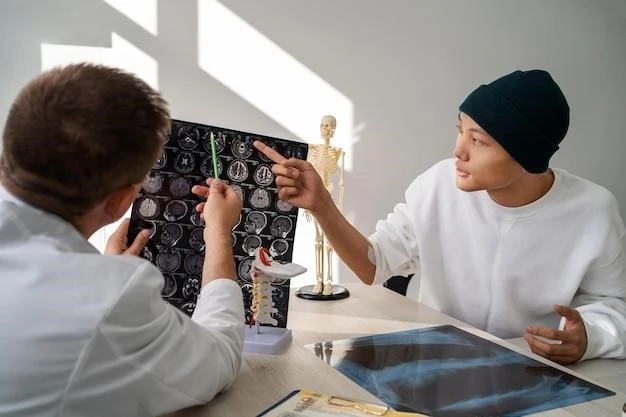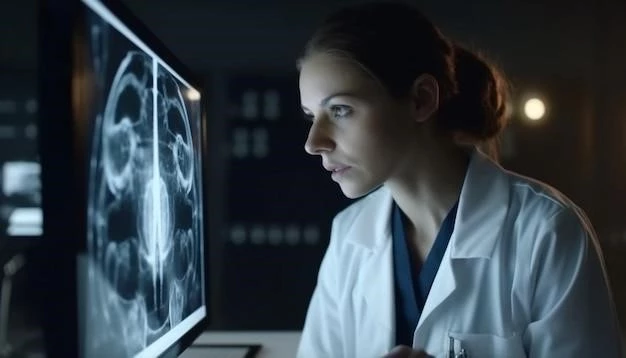Overview of Arakawas Syndrome II
An in-depth look at Arakawas Syndrome II.
Introduction to Arakawas Syndrome II
Arakawas Syndrome II is a rare genetic disorder characterized by specific physical and neurological symptoms. Understanding its impact is crucial for proper management and support.
Causes of Arakawas Syndrome II
Exploring the genetic factors behind the syndrome.
Genetic Factors
Arakawas Syndrome II is primarily caused by genetic mutations that affect specific genes related to neurological function and physical development. Understanding these genetic factors is essential for comprehensive management.
Symptoms and Signs of Arakawas Syndrome II
Identifying the clinical manifestations of the syndrome.
Physical Symptoms
The physical symptoms of Arakawas Syndrome II may include muscle weakness, joint contractures, scoliosis, and respiratory issues. Proper recognition and management of these symptoms are crucial.
Neurological Symptoms
Individuals with Arakawas Syndrome II may experience neurological symptoms such as developmental delays, seizures, intellectual disability, and speech difficulties. Understanding and addressing these neurological manifestations is essential for comprehensive care.

Diagnosis and Testing for Arakawas Syndrome II
Evaluating methods for accurate diagnosis.
Medical History and Physical Examination
Thoroughly reviewing the patient’s medical history and conducting a comprehensive physical examination are crucial steps in diagnosing Arakawas Syndrome II. These assessments provide valuable insights for healthcare professionals.
Genetic Testing
Genetic testing plays a crucial role in confirming the diagnosis of Arakawas Syndrome II. By analyzing specific genes associated with the condition, healthcare providers can provide tailored care and support to affected individuals.
Treatment Options for Arakawas Syndrome II
Exploring available interventions.
Medication
Medication may be prescribed to manage symptoms such as seizures, muscle spasms, and other associated conditions in individuals with Arakawas Syndrome II. Close monitoring and adjustments are essential for optimal treatment outcomes.
Physical Therapy
Physical therapy plays a vital role in improving muscle strength, mobility, and overall function for individuals with Arakawas Syndrome II. Customized therapy plans can help enhance quality of life and independence.
Prognosis and Outlook for Arakawas Syndrome II
Evaluating long-term implications.
Disease Progression
Arakawas Syndrome II typically presents with a progressive course, leading to increasing challenges in mobility and daily activities over time. Regular monitoring and appropriate interventions are key in managing disease progression effectively.
Quality of Life
Enhancing the quality of life for individuals with Arakawas Syndrome II involves a multidisciplinary approach, focusing on symptom management, physical and emotional well-being, and maximizing independence. Supportive care and adaptive strategies play a significant role in improving overall quality of life.
Research and Developments in Arakawas Syndrome II
Exploring advancements in understanding.
Ongoing Studies
Current research is focused on uncovering potential new treatment approaches, understanding the underlying mechanisms of the disease, and improving overall care for individuals affected by Arakawas Syndrome II. Ongoing studies aim to enhance outcomes and quality of life.
Emerging Therapies
Researchers are exploring novel therapies such as gene therapy, stem cell treatments, and precision medicine to address the symptoms and progression of Arakawas Syndrome II. These emerging approaches hold promise for future advancements in managing the condition effectively.
Support and Resources for Individuals with Arakawas Syndrome II
Accessing assistance and guidance.
Patient Organizations
Patient organizations dedicated to Arakawas Syndrome II provide valuable support, resources, and a sense of community for individuals and families affected by the condition. These organizations play a crucial role in advocacy, education, and connecting individuals to relevant services.
Caregiver Support
Caregiver support programs offer assistance, education, and emotional guidance to those caring for individuals with Arakawas Syndrome II. These resources aim to help caregivers navigate challenges effectively and ensure the well-being of both the individual and the caregiver.
